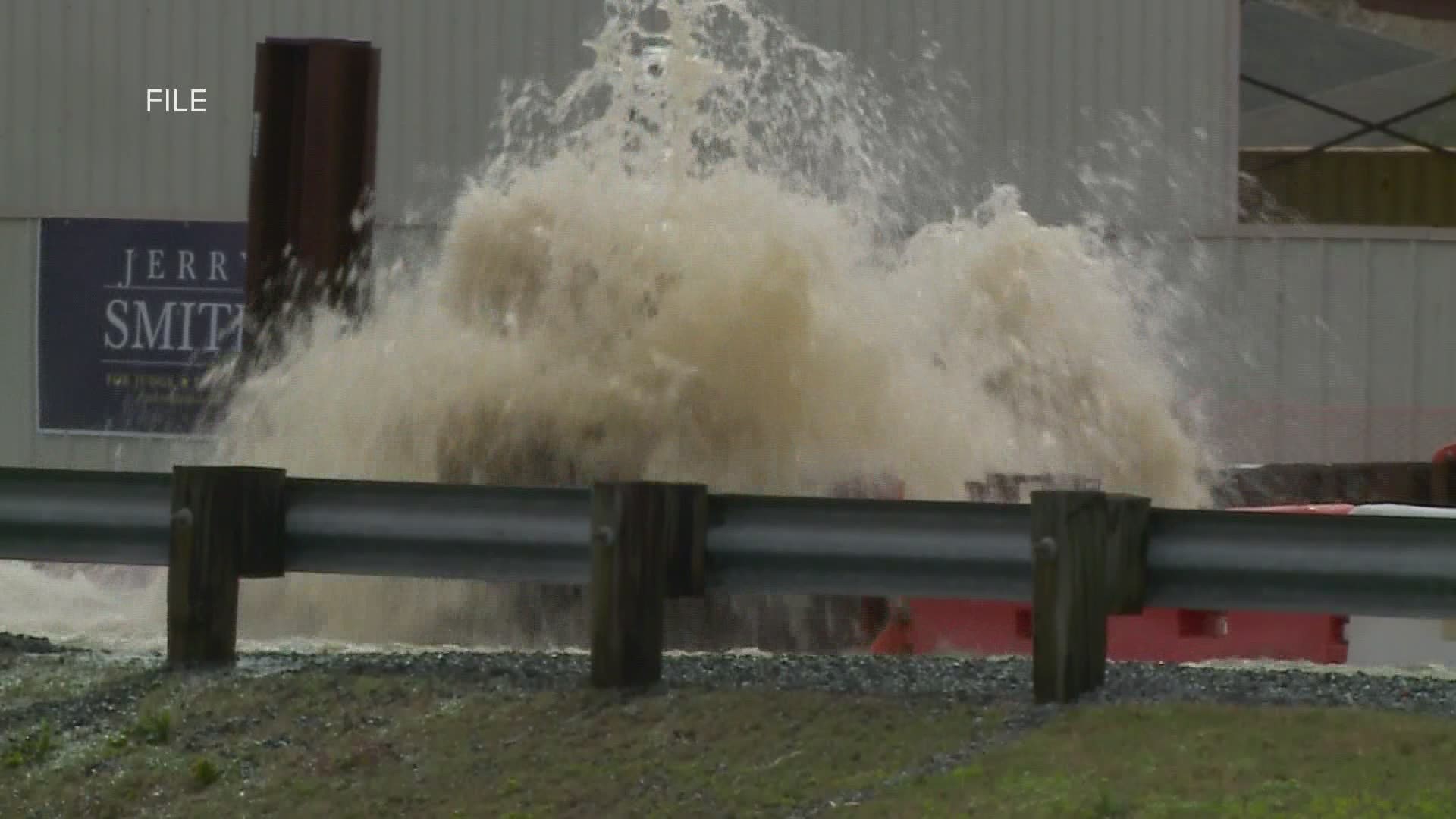NEW ORLEANS — While the New Orleans Sewerage and Water Board didn’t face the flooding challenges from Hurricane Ida that some people anticipated, the agency is dealing with a different crisis involving sewage.
City officials hinted at serious problems as the storm was making its way onshore when they warned residents to minimize their use of wastewater by avoiding the use of appliances such as washing machines, dishwashers, even showers and toilet use.
The reason stated at that time was that the Entergy power to the city’s sewage lift stations was lost. But as the catastrophe unfolded, the sewage problems multiplied, ultimately leading to a decision to dump untreated sewage into the Mississippi River.
That sewage dump was still ongoing into late Thursday, although officials were hopeful to get matters under control by day’s end.
“They have sewage at the moment going into the river,” said Ramsey Green, Deputy CAO over Infrastructure at the city’s noon press conference. “And they had to notify the Department of Environmental Quality of the state and the Environmental Protection Agency, EPA at the federal level.”
Green explained that on top of the loss of power, the East Bank water treatment plant flooded, leaving the agency to make a critical decision to avoid toilets from backing up into homes and businesses.
That decision was to unleash the untreated waste into the river.
“You want to process it and get it out, but you also don’t want it in the streets of our city and you don’t want it in people’s homes and business. This was the only thing they could do.”
Green didn’t have details on the volume of waste dumped into the river, but said the raw sewage unfortunately was left to flow uncontrolled to all areas downriver from the treatment plant near the Orleans-St. Bernard Parish line.
“It’s unfortunate,” Green said. “If you are a community on the river, this is something that you have to be aware of.”
During the crisis, some mitigation efforts were launched including sending vacuum trucks to the sewage lift stations to pump out as much of the waste as possible.

